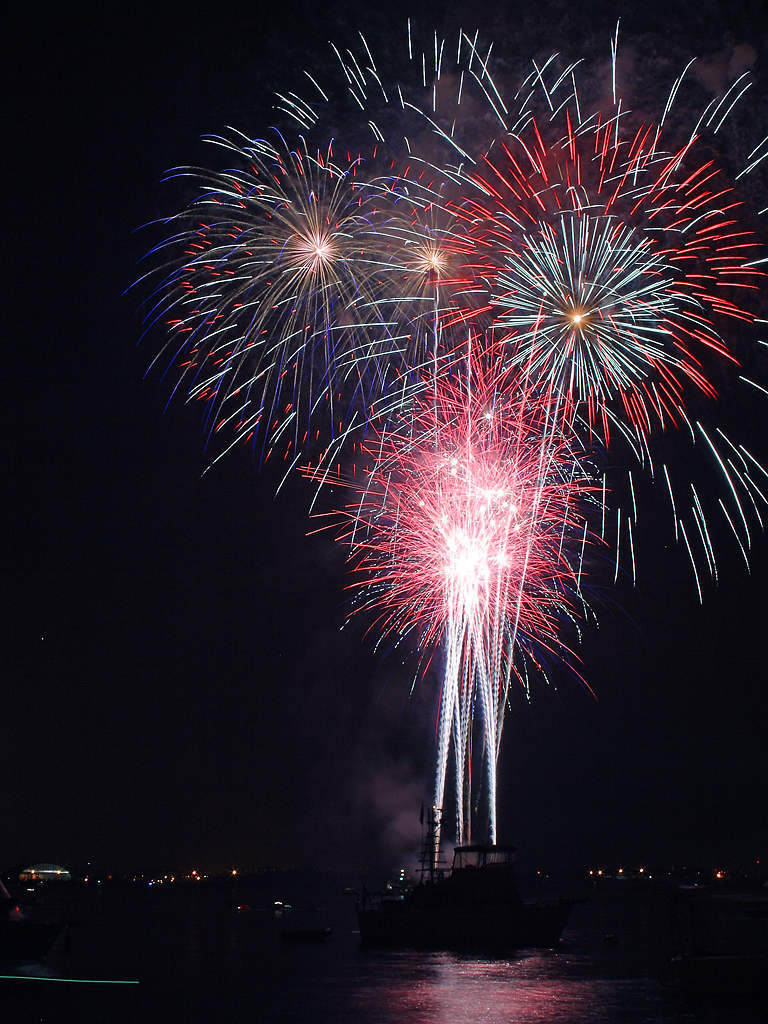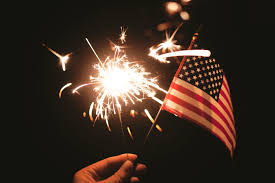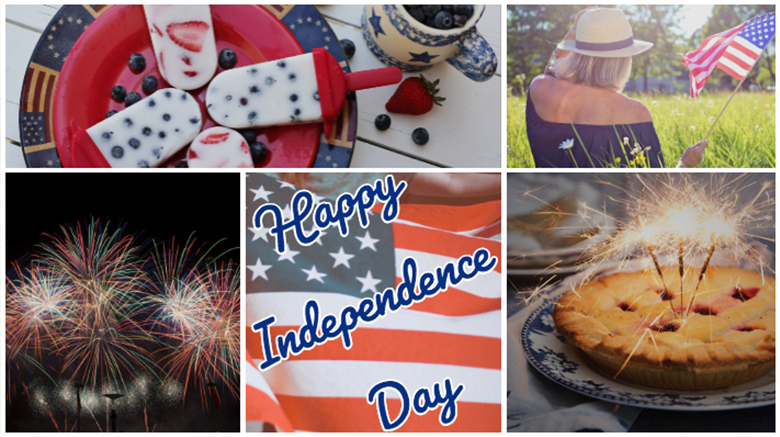Heather Barry, Ph.D., SJC Long Island’s director of the Faculty Center for Teaching and Learning, and professor of history, is an American colonial historian. We decided to ask her some questions about the historical significance of Independence Day.
Q: What historical events led to the creation of this holiday?
 A: The events that led up to the Declaration of Independence began in the 1760s and 1770s in colonial America. After the Seven Years’ War (also referred to the French and Indian War), the relationship between colonists and Parliament changed, and disagreements began to boil over. Eventually, war broke out in April of 1775, and independence was declared over a year later. This is the historical beginning of this holiday.
A: The events that led up to the Declaration of Independence began in the 1760s and 1770s in colonial America. After the Seven Years’ War (also referred to the French and Indian War), the relationship between colonists and Parliament changed, and disagreements began to boil over. Eventually, war broke out in April of 1775, and independence was declared over a year later. This is the historical beginning of this holiday.
Q: Are there any common misconceptions surrounding the Fourth of July?
A: Like so many of the holidays we celebrate today, misconceptions surround most of them! The Fourth of July is a perfect example. Many people believe that we celebrate the Fourth of July because that was the date delegates signed the Declaration of Independence back in 1776, or that it was the date the Continental Congress delegates voted to declare their independence from Great Britain. Other people believe that the date was the start of the American Revolution.
All of these are inaccurate. The American Revolution began over a year before this declaration (the Revolutionary War began in April of 1775). The Continental Congress voted to declare their independence from Great Britain on July 2, 1776, and the actual Declaration of Independence was not signed by most until Aug. 2 of 1776.
So, how did the Fourth of July become the date to celebrate declaring independence from Great Britain? No one knows for sure, but evidence suggests that the first popularly published copies of the Declaration of Independence had the date July 4, 1776, printed on them. Then, two famous Americans, Thomas Jefferson and John Adams both died on July 4 in 1826, making this a memorable date. In actuality, the Fourth of July did not become a national holiday until 1870…almost 100 years after the event!
Q: Is there a difference in the way we observe this holiday as a nation now compared to how it was observed in the late 1700s?
 A: For the first 15-20 years, Americans did not celebrate any one date or in any consistent way the Declaration of Independence. There are records of people celebrating independence by firing guns, ringing bells, lighting bonfires and even fireworks on various days in July and August of 1776 and 1777. The day was not celebrated in any consistent way until the 19th century.
A: For the first 15-20 years, Americans did not celebrate any one date or in any consistent way the Declaration of Independence. There are records of people celebrating independence by firing guns, ringing bells, lighting bonfires and even fireworks on various days in July and August of 1776 and 1777. The day was not celebrated in any consistent way until the 19th century.
Q: Can you touch on the subject of people referring to the Fourth of July as the birthday of the U.S.A?
A: Many Americans believe that the Fourth of July is a holiday to celebrate the signing of the Declaration of Independence and that this document created the United States of America. In fact, the Declaration of Independence did not create the United States of America as we know it today. The Declaration of Independence created 13 independent sovereign states that no longer wanted to be a part of Great Britain. The United States of America, with a central government, was created as a result of the Constitution that was ratified in 1789.
In the end…does it really matter when, why or how we celebrate the beginning of the United States? I argue no! We should celebrate the United States, and whether we celebrate it on July 2, 4 or in August…the idea remains the same… We should celebrate together as a nation, and the Fourth of July works well!
Q: What was New York’s involvement in the Declaration of Independence?
A: New York’s involvement is interesting… See, New York was under British occupation, so most New Yorkers had to either be or pretend to be loyalists in 1776. New York did have delegates, but they decided to abstain from the July 2 vote to declare independence.
Q: Are there any fun facts about the Fourth of July?
 • Long Island’s very own William Floyd signed the Declaration of Independence.
• Long Island’s very own William Floyd signed the Declaration of Independence.
• Congress made the Fourth of July an official unpaid holiday for federal employees in 1870. In 1938, Congress changed the day to be a paid federal holiday.
• The Declaration of Independence was signed by 56 men from 13 colonies.
• It is believed that the first Independence Day celebration took place in Philadelphia on July 8, 1776.
•Three American presidents died on July 4: John Adams, Thomas Jefferson and James Monroe.

